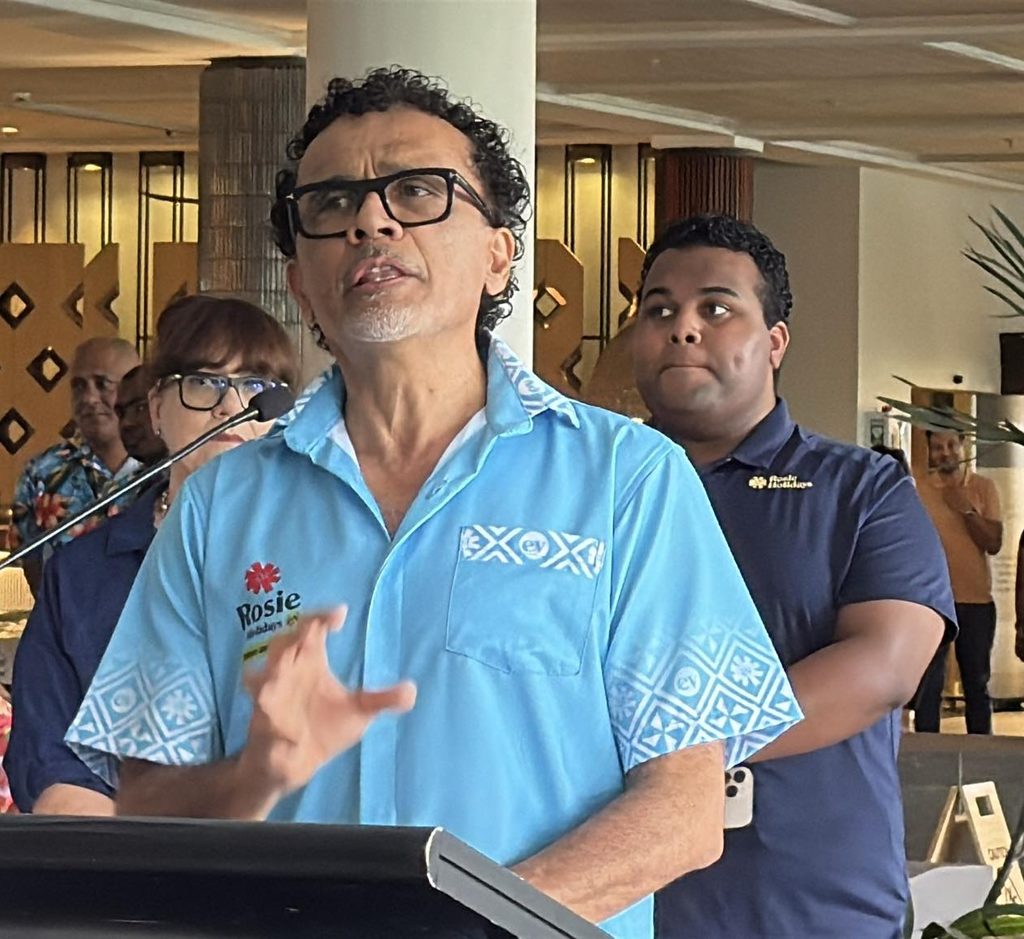Fiji has recently taken significant strides towards promoting eco-tourism, culminating in the hosting of the Global Sustainable Tourism Conference (GSTC) 2025 in Nadi. This historic event, which marked its first occurrence in the Pacific, welcomed over 350 delegates from more than 30 countries, all united in their passion for sustainable travel.
Showcasing Commitment to Sustainability
In a concerted effort to highlight its dedication to eco-friendly tourism, Fiji’s Deputy Prime Minister and Minister for Tourism and Civil Aviation, Viliame Gavoka, introduced the country’s first fleet of electric tourist coaches. This initiative reflects a growing trend towards greener tourism practices, positioning Fiji as a leader in sustainable travel. Rosie Travel Group, one of Fiji’s key tourism operators, pioneered this initiative, marking a significant achievement in environmentally responsible tourism.
Fantasha Lockington, Deputy Chair of Tourism Fiji, emphasized that hosting GSTC 2025 demonstrated that even small island nations can lead substantial changes in international tourism practices. Her sentiments echoed the desire to welcome global changemakers to Fiji’s shores, showcasing the nation’s commitment to community-focused, sustainable tourism efforts.
A Step Towards Carbon Neutrality
The introduction of electric coaches in Fiji’s tourism sector is more than a convenience; it is a testament to the nation’s ambition to reduce its carbon footprint and promote cleaner travel options. These new 53-seater coaches can travel over 300 kilometers with a single charge when fully loaded, reflecting a significant advancement in sustainable transportation within the tourism industry. With eco-friendly initiatives such as these, Fiji aims to attract environmentally conscious travelers, ensuring the natural beauty of its islands is preserved for future generations.
Challenges and Opportunities in Eco-Tourism
While Fiji is making headway in sustainable tourism, challenges remain. The charm of its pristine beaches and lush landscapes is a double-edged sword. Increased tourism can pose threats to the delicate ecosystems of the islands, necessitating careful management and visitor education to ensure sustainable practices are followed.
Historical Context of Eco-Tourism in Fiji
Historically, eco-tourism has been a growing focus for Fiji, particularly as awareness regarding environmental preservation has risen globally. Over the years, tourism has evolved from being purely a leisure-oriented endeavor into a more comprehensive approach that embraces sustainability as a core principle. The implementation of eco-friendly practices not only enhances the tourism sector’s environmental footprint but also benefits local communities economically by promoting sustainable livelihoods and conservation efforts.
This evolution is crucial as the tourism industry remains a significant contributor to Fiji’s GDP, with over 35% of the economy linked to travel and tourism to its islands. With international arrivals steadily increasing year-on-year, the importance of sustainable practices becomes ever more pressing to maintain the integrity of the local environment and culture.
Forecast for Eco-Tourism in Fiji
The implications of these advancements in eco-tourism can affect global tourism trends significantly. As more travelers become conscious of their ecological footprints, destinations that prioritize sustainability will likely see a surge in interest. Moreover, as small island nations like Fiji set examples in the eco-tourism sphere, others may feel encouraged to follow suit, creating a ripple effect across the global tourism landscape.
Fiji’s commitment to green initiatives reflects broader trends in the tourism sector where sustainability and community involvement are becoming key considerations for travelers. The introduction of electric coaches, combined with the emphasis on environmentally responsible tourism practices, could serve as a blueprint for other destinations looking to promote responsible travel.
As the climate crisis continues to shape consumer preferences, destinations employing sustainable methods may benefit from a competitive advantage, attracting environmentally aware travelers eager to make a positive impact through their travel choices. Fiji stands to not only preserve its natural beauty but also reposition itself as a leader in an adventure tourism market that respects and nurtures its unique environment.
In conclusion, Fiji’s focus on eco-tourism through initiatives like the launch of electric coaches and hosting the Global Sustainable Tourism Conference illustrates a profound commitment to sustainable practices. This approach is vital not only for conserving the stunning landscapes that define the islands but also for crafting a tourism model that supports local communities. For those seeking to experience the beauty of Fiji by sea, GetBoat.de provides an excellent platform for renting sailing boats and yachts, catering to all tastes and budgets while promoting responsible tourism.

 Fiji’s Commitment to Eco-Tourism">
Fiji’s Commitment to Eco-Tourism">
